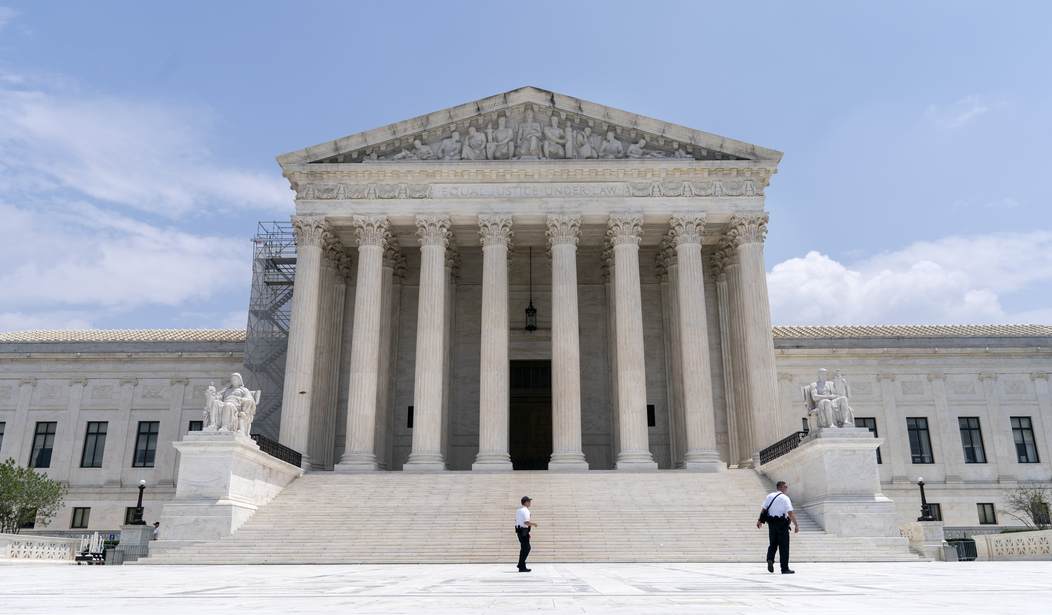Overturning Chevron Deference Would Restore Congressional Authority and Reinforce Constitutional Balance
If we want Washington to work for us, the American people, we must start by restoring power back into the hands of those we elect and away from unelected bureaucrats. A critical aspect of this transformation hinges on addressing a doctrine known as Chevron Deference. Far more than a mere technicality, this legal principle has significantly shifted the dynamics of our nation's lawmaking, blurring lines of accountability and diminishing the legislative role of Congress.
For over 40 years, Congress has been derelict in its duties, hiding behind Chevron Deference, established in Chevron U.S.A., Inc. v. Natural Resources Defense Council, Inc. (1984), to delegate its power to federal agencies. This abdication of responsibility has led to vaguely worded legislation, paralyzing gridlock, and sprawling omnibus bills. One stark example of this issue is the Waters of the United States (WOTUS) rule. Under the influence of Chevron Deference, its interpretation has been subject to dramatic shifts with each changing administration, illustrating the instability and confusion bred by this doctrine.
As an attorney and a Utah lawmaker, I see a stark contrast between our state's effective governance and the inefficiencies in Washington. In Utah, we meticulously craft bills annually with specific language to minimize bureaucratic overreach. This diligence is not just best practice; it's our duty to the people. Unlike the federal bureaucracy, which operates in the shadows, our state government is directly accountable to its citizens.
The doctrine of Chevron Deference is a fundamental deviation from the constitutional design of our government. The legislative branch, intended by the framers of the Constitution to be the sole creator of laws, has enabled unelected bureaucrats to interpret and effectively create laws, eroding this principle. This isn't about the intelligence or capability of bureaucrats, but about the principle of democratic representation and accountability.
To ensure that laws reflect the will of the people and maintain the balance of power essential to our constitutional republic, we must end Chevron Deference. This change is vital for restoring legislative power to elected representatives. Additionally, adopting single-issue legislation would compel Congress to draft laws that are precise, transparent, and accountable, reflecting the true intent of our Founding Fathers. Single-issue bills, as advocated by James Madison in The Federalist No. 62, would ensure that each law is thoroughly debated and understood before being passed. This approach would eliminate the complexities often buried in omnibus packages, allowing for greater transparency, less government waste, and a greater public understanding of legislation.
It’s time to demand more from our federal legislators. They must step up and take responsibility for our nation's laws, rather than deferring to agencies led by unelected bureaucrats. It's time for clarity in our legislation, for accountability in our government, and for respect for our Constitution. I believe the Supreme Court should end Chevron Deference, creating a significant step in returning power to the people's elected representatives and realigning our government with its constitutional foundation.
It is time to take our country back. That starts by removing control from the backrooms of bureaucracy and placing it firmly in the halls of Congress, under the watchful eye of the American people. This is not just a legal correction, but a pivotal moment in restoring the integrity of our legislative process. It is an opportunity to reaffirm our commitment to the limited government principles upon which our nation was founded and a way to give regular people a stronger voice in Washington.
RELATED:
SCOTUS Grants Review of Case That Will Gut the Federal Bureaucracy
US Supreme Court May Be About to Dramatically Scale Back Federal Regulatory Powers
Mike Kennedy is an American physician, attorney, and politician. He has served as a Republican member of the Utah Senate since 2021. Prior to that, he served as a member of the Utah House of Representatives from 2013 to 2019.














Join the conversation as a VIP Member